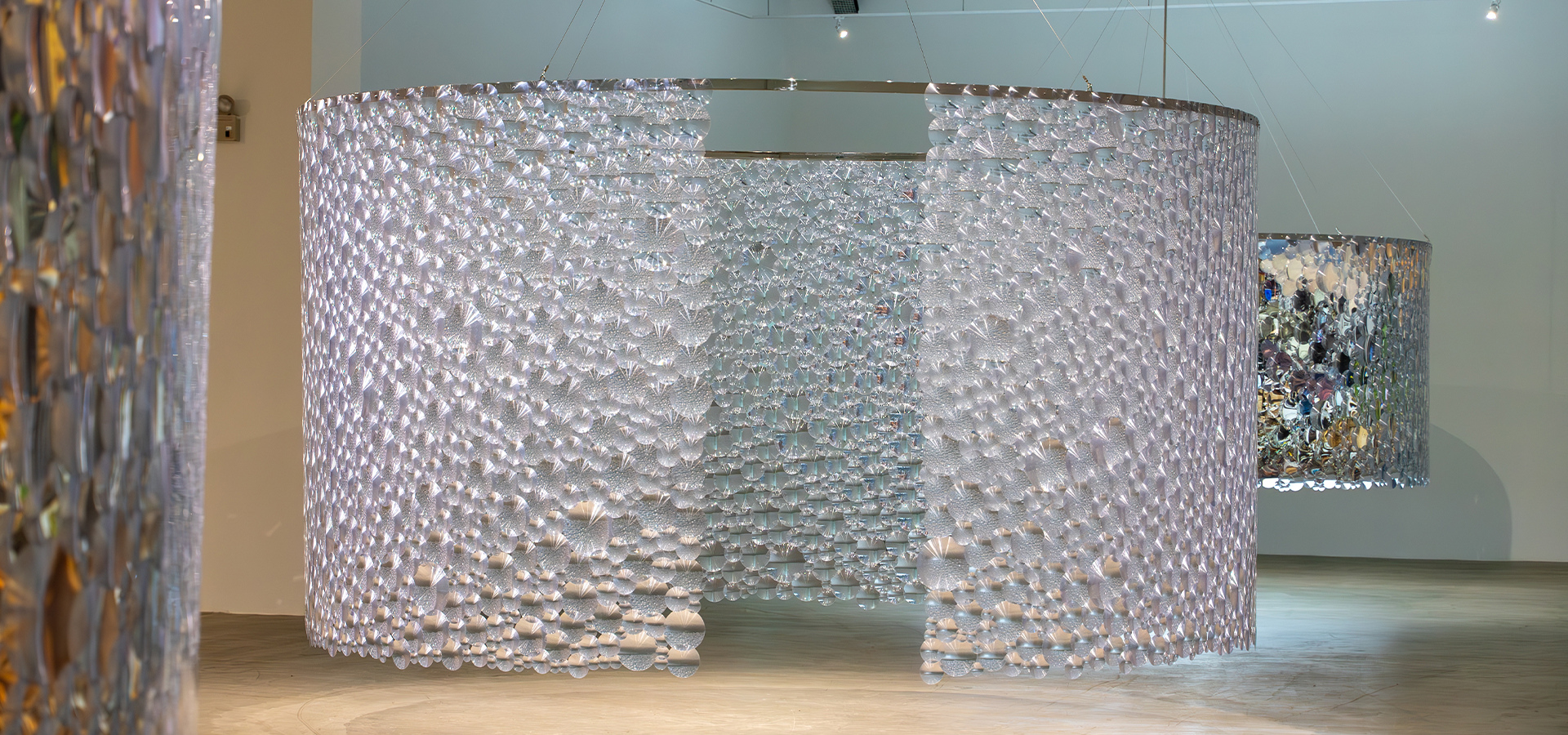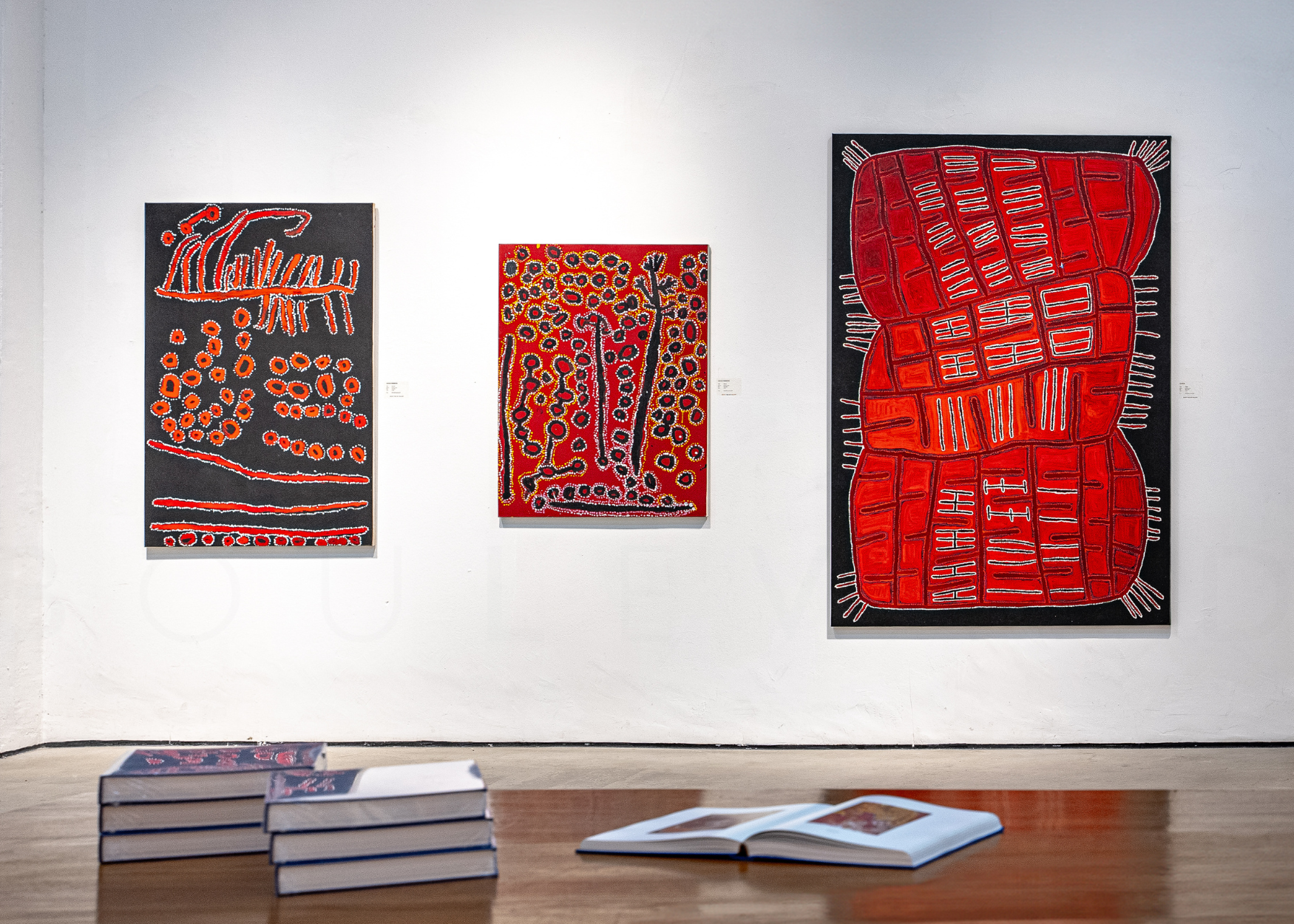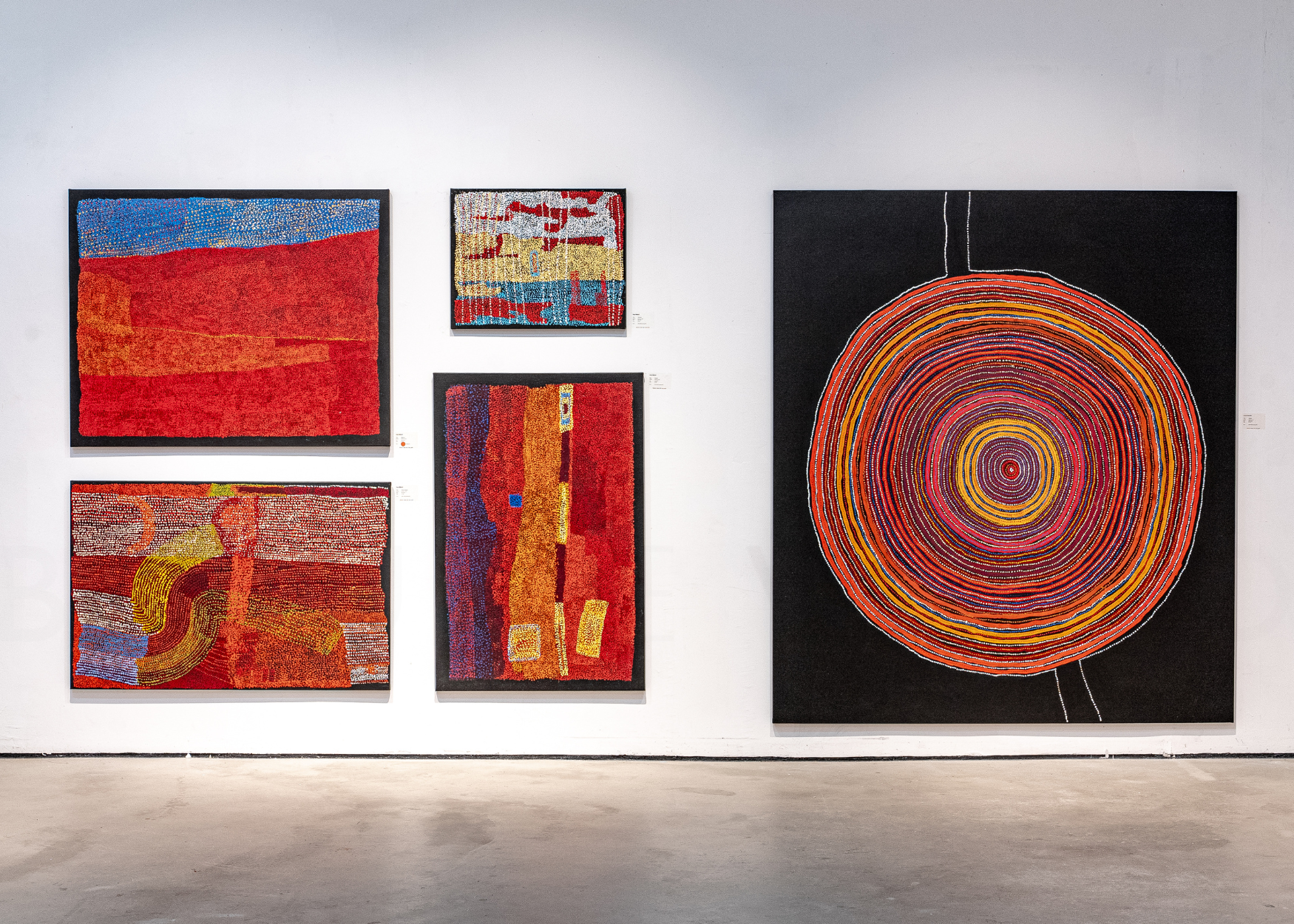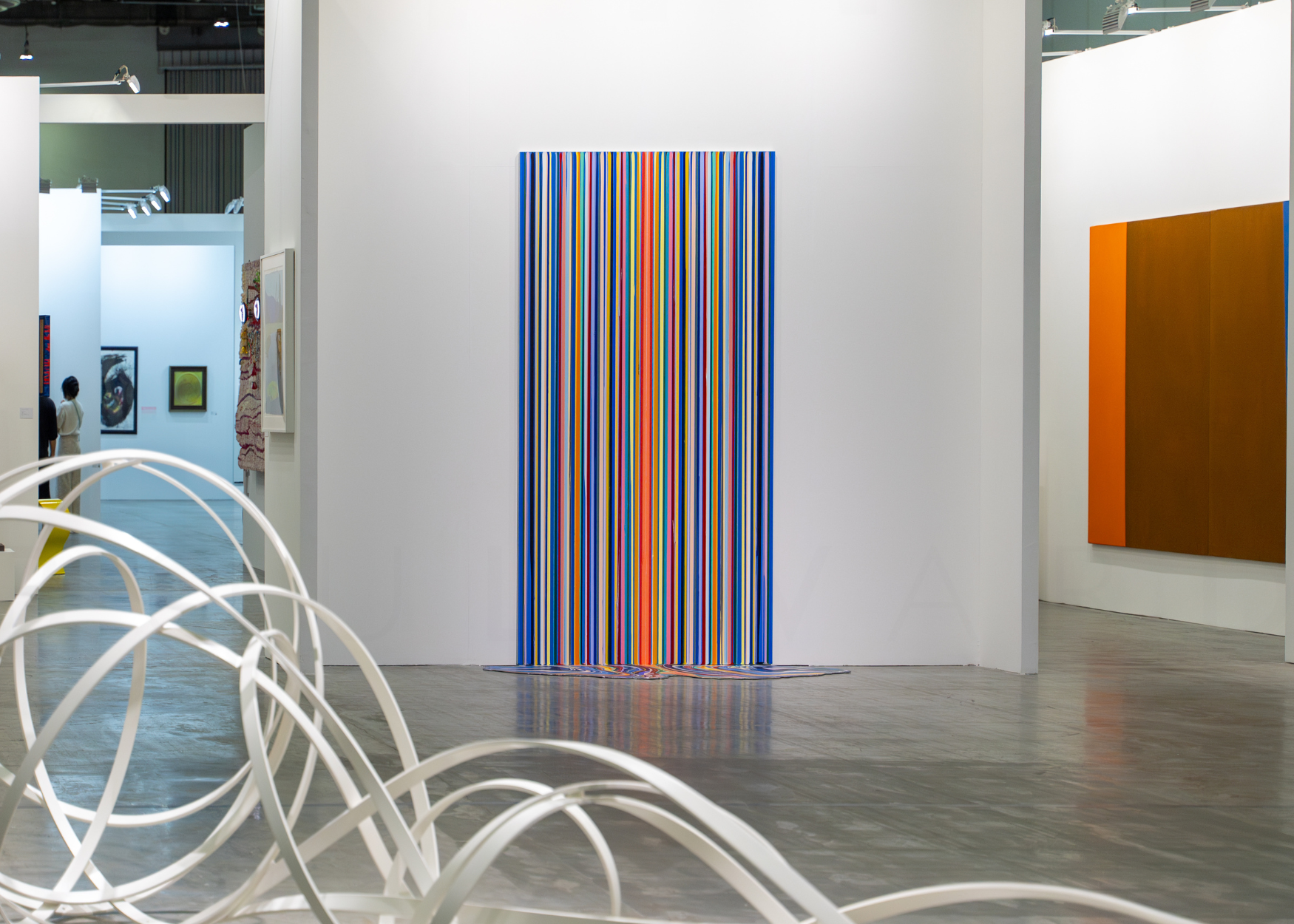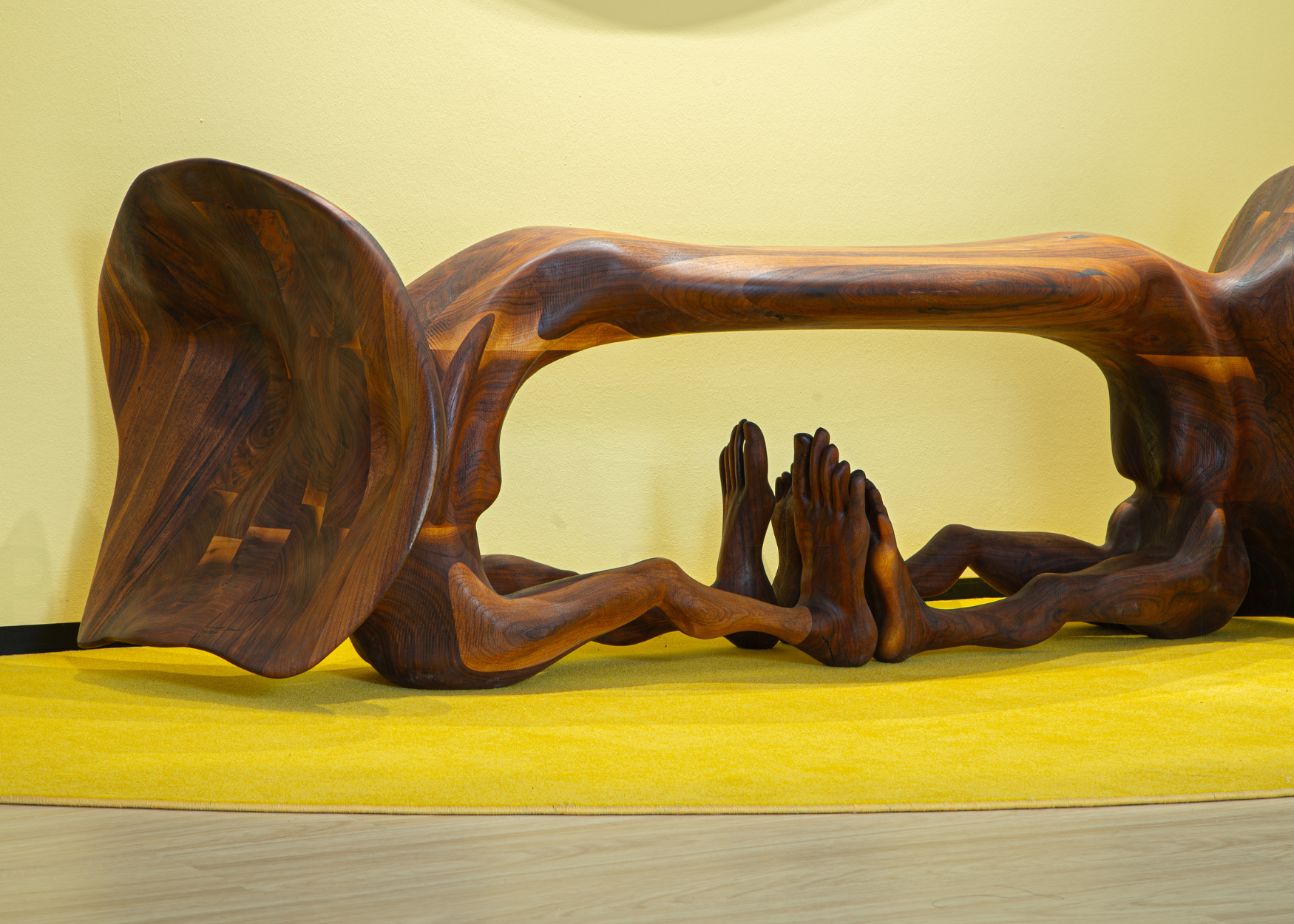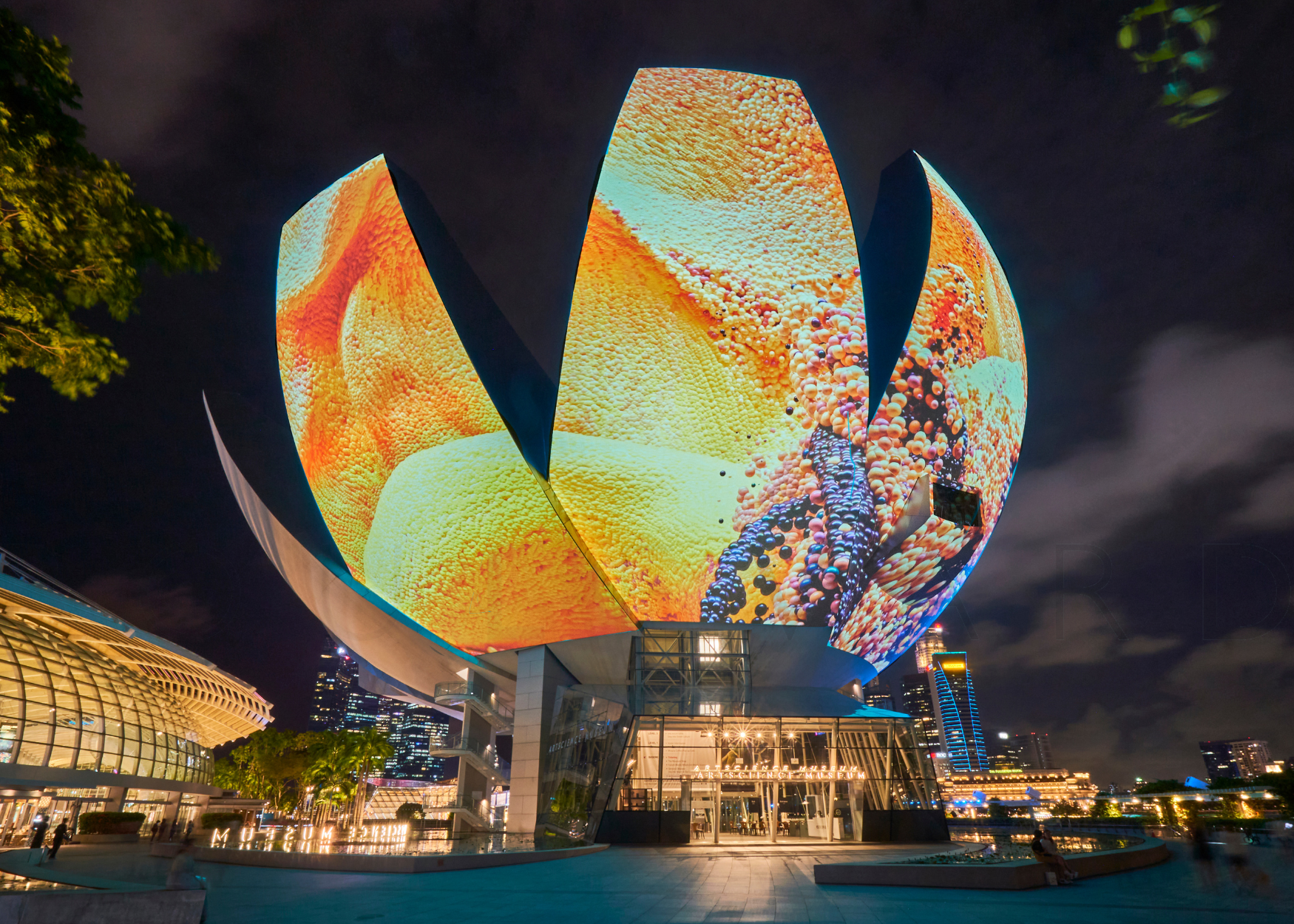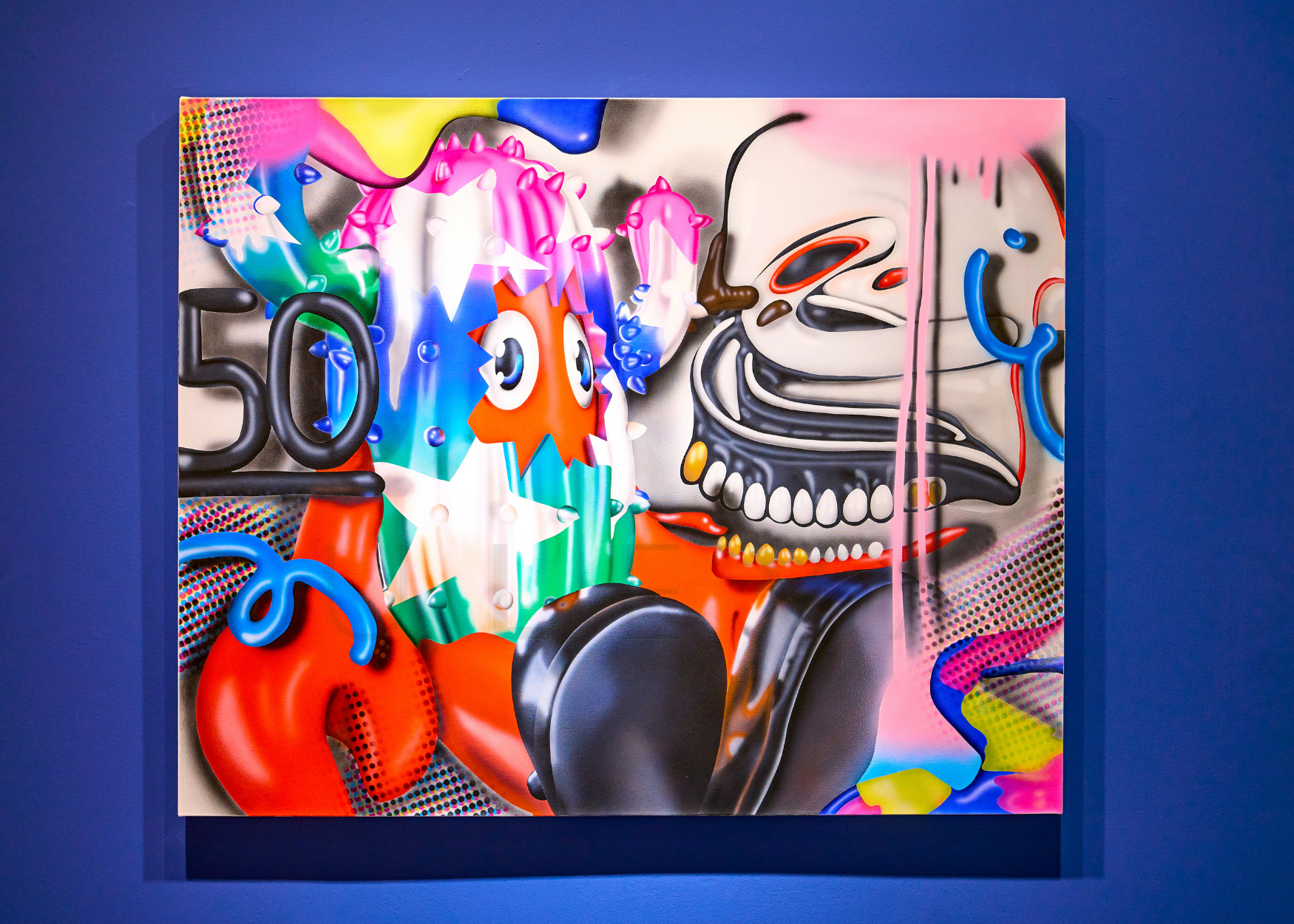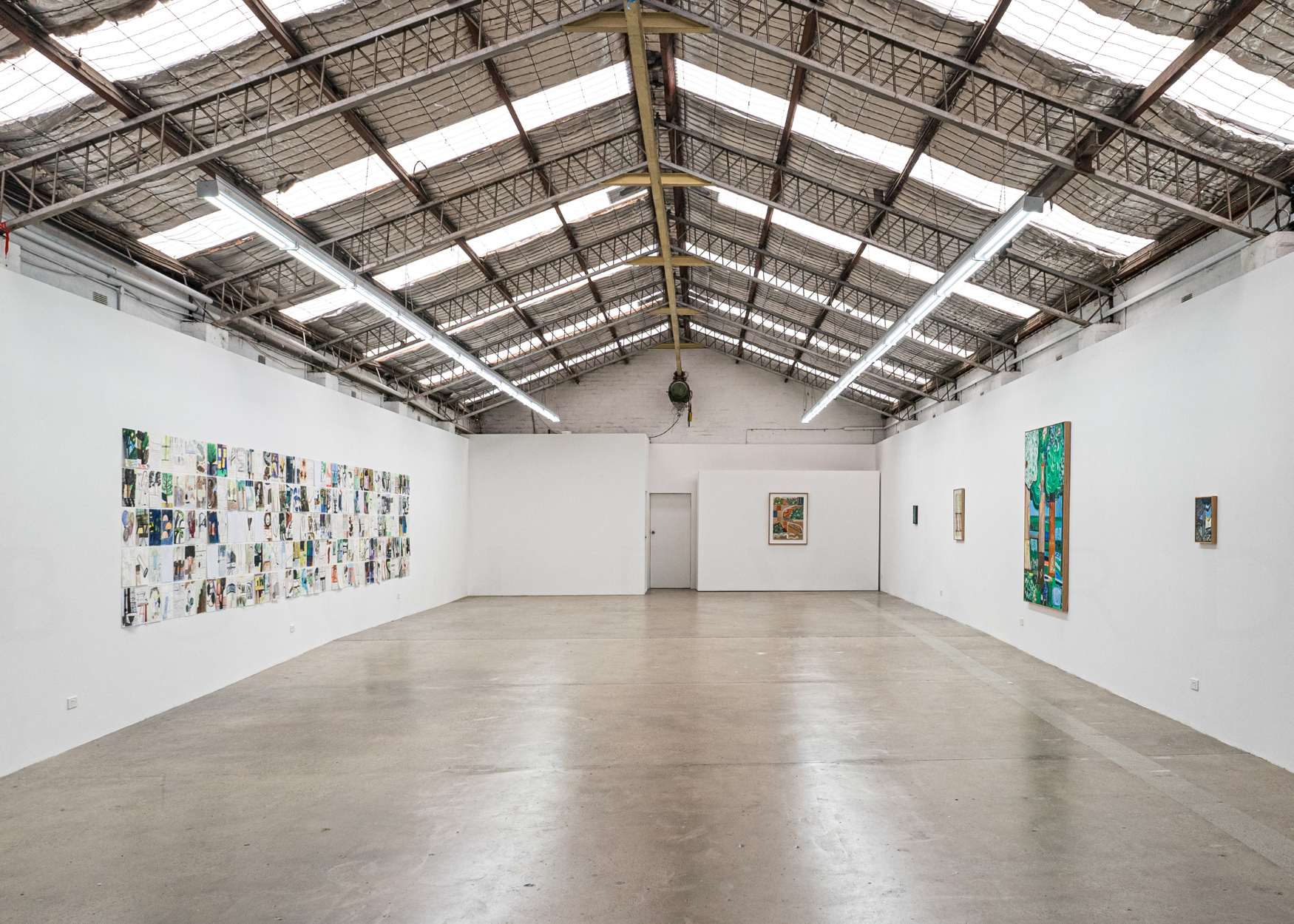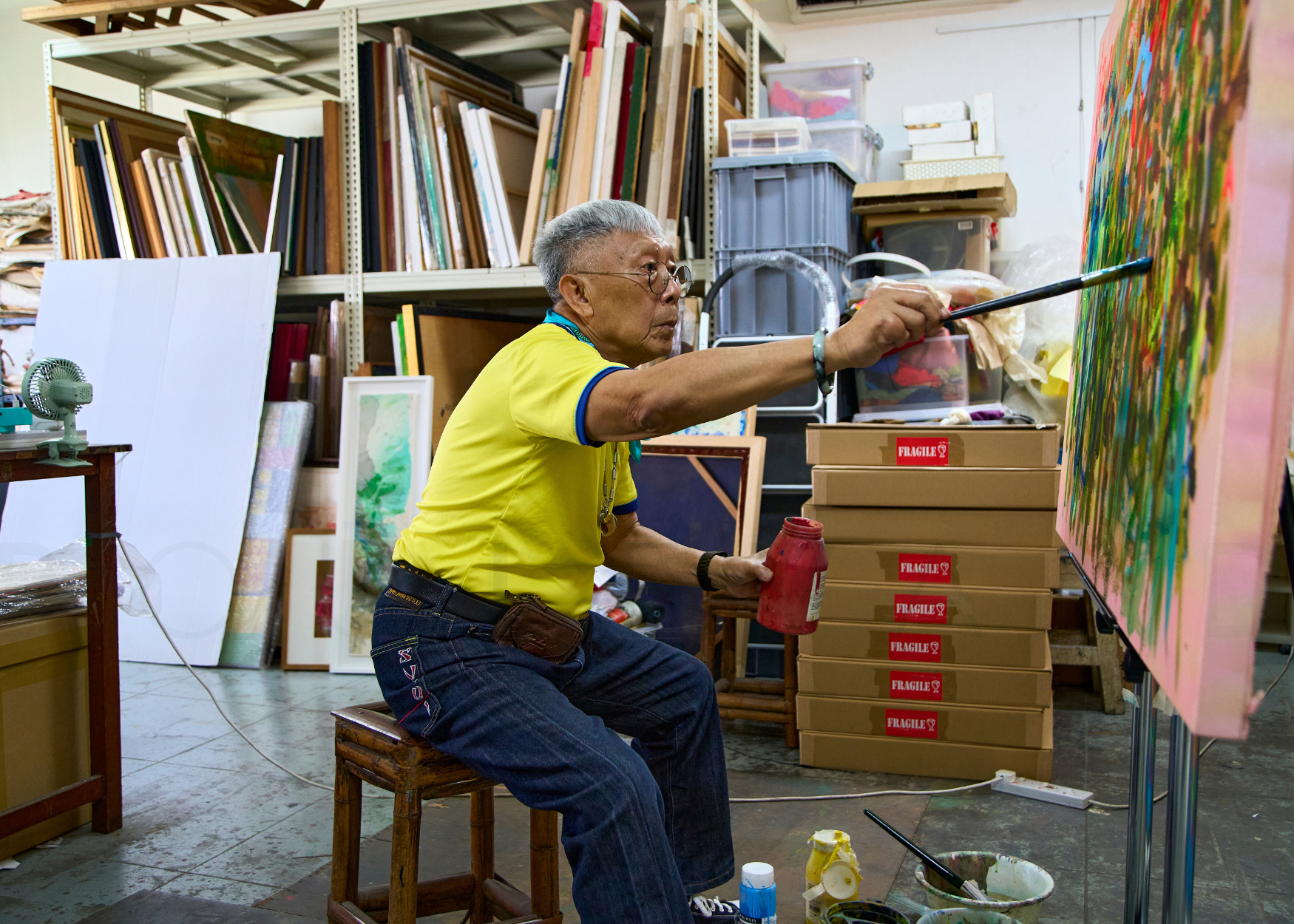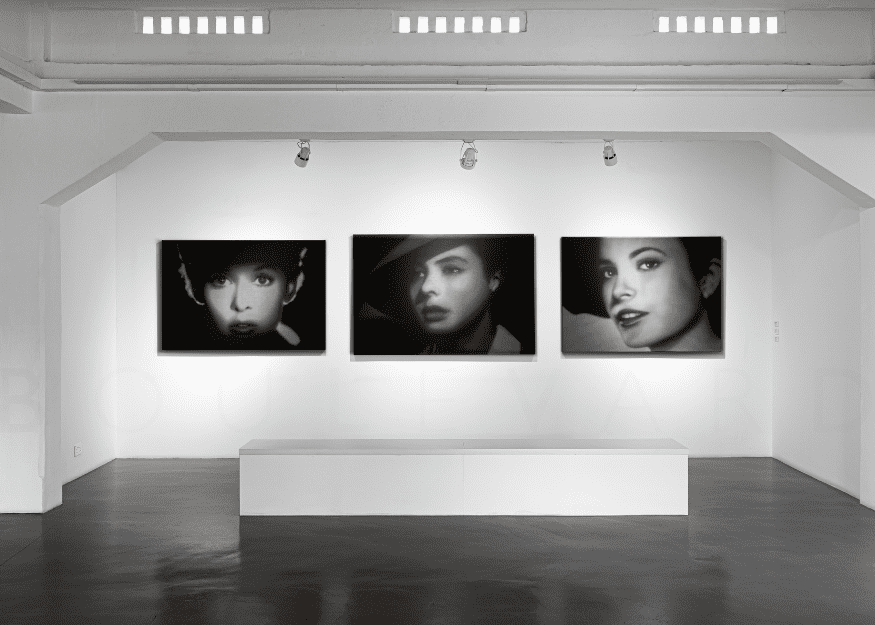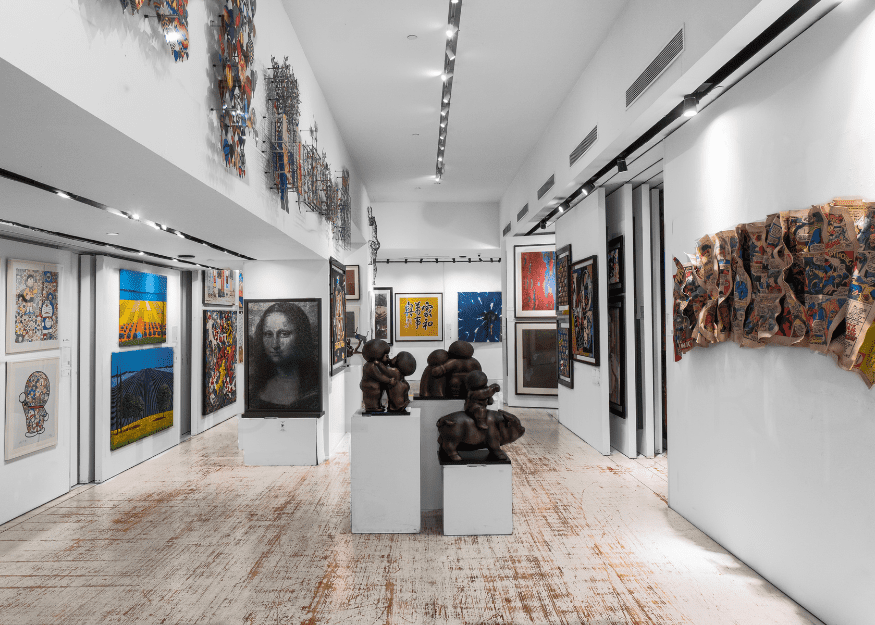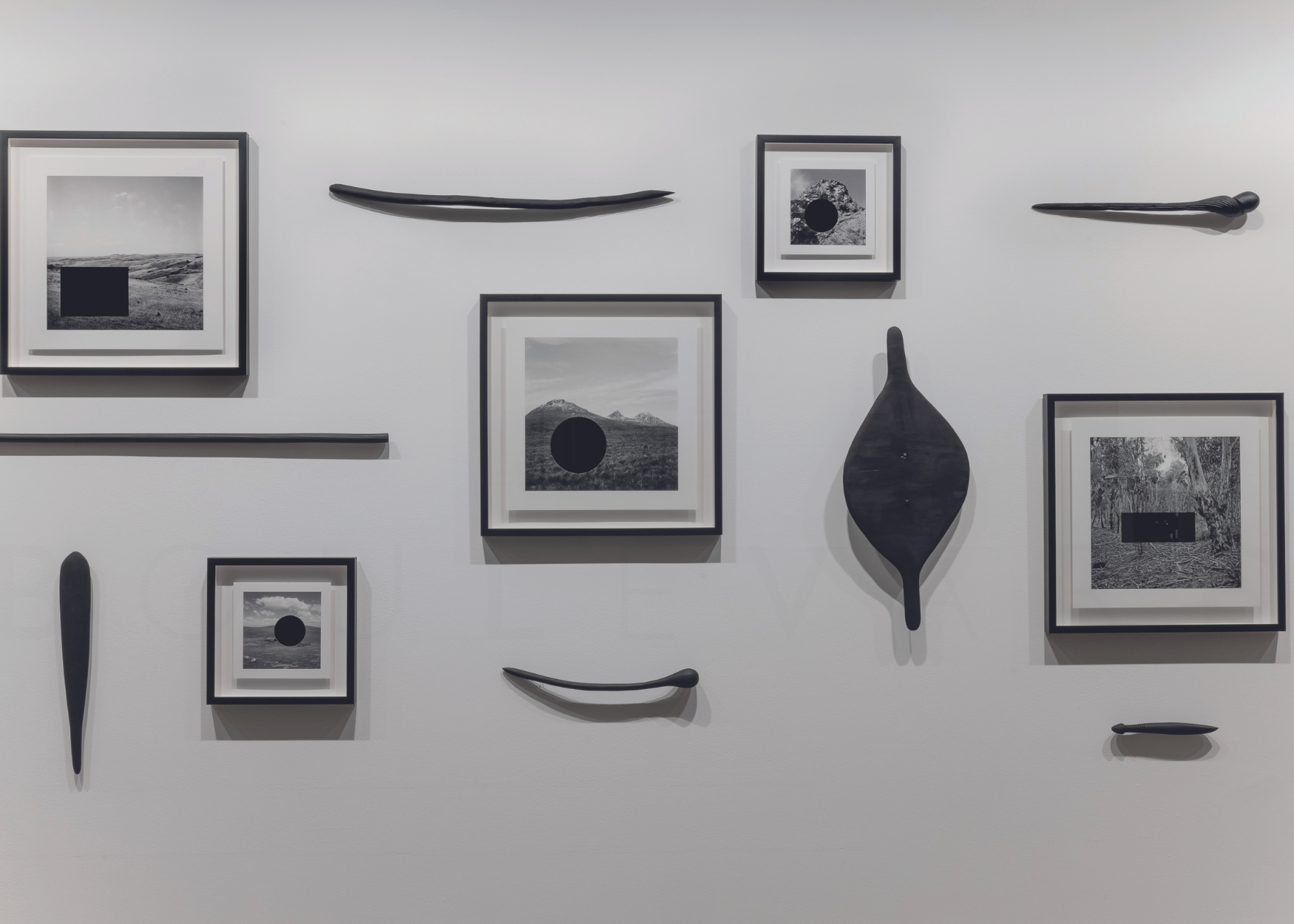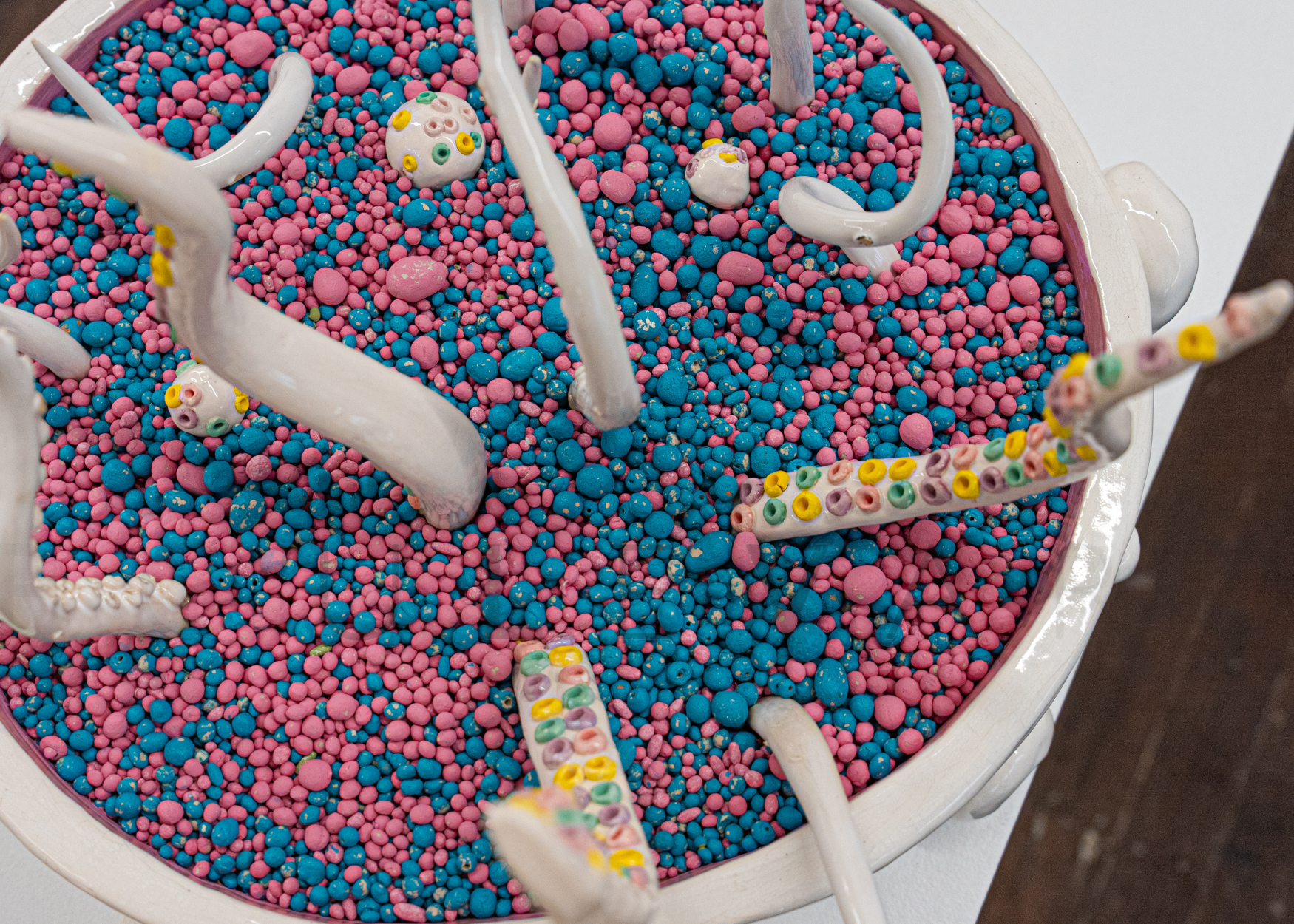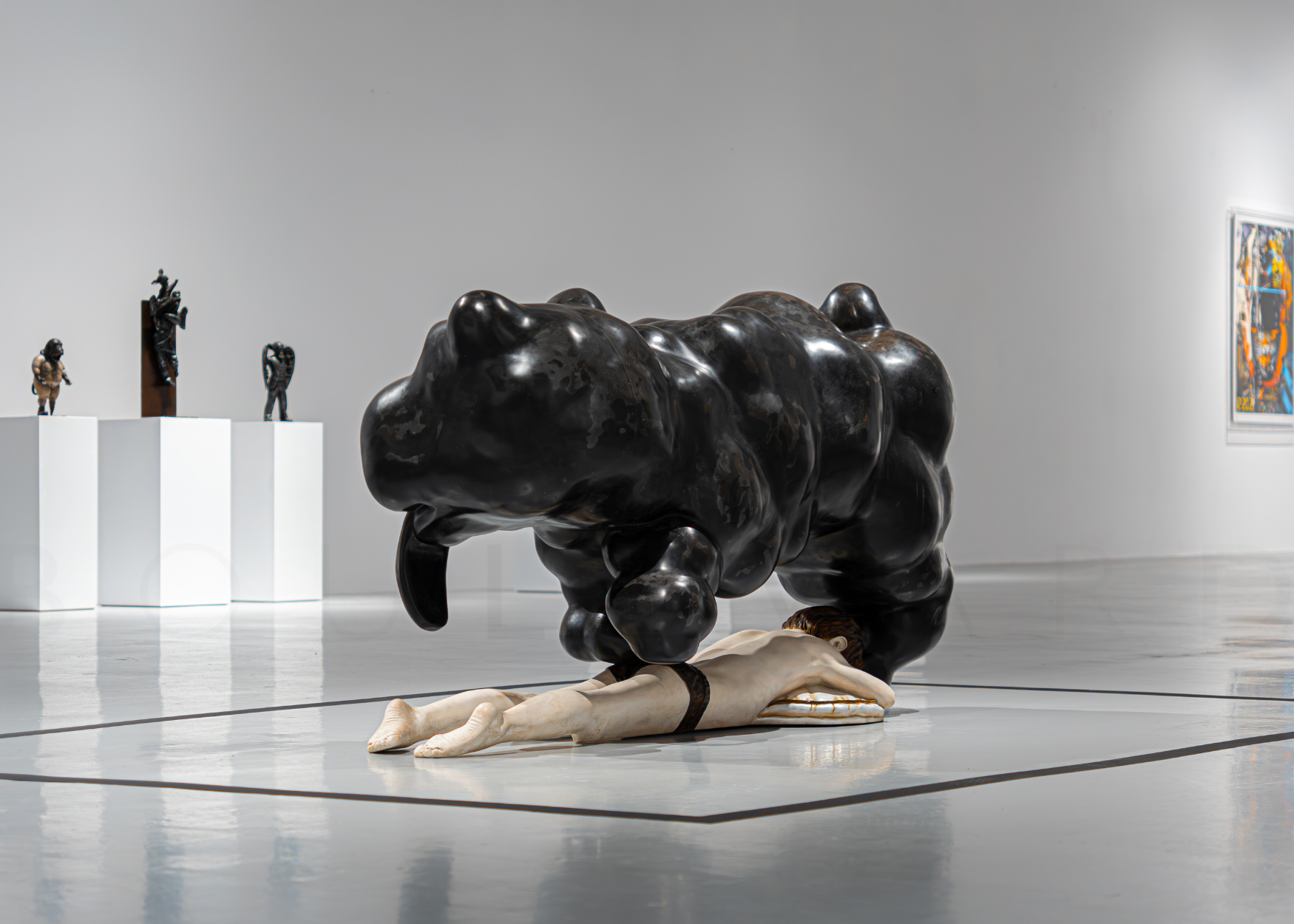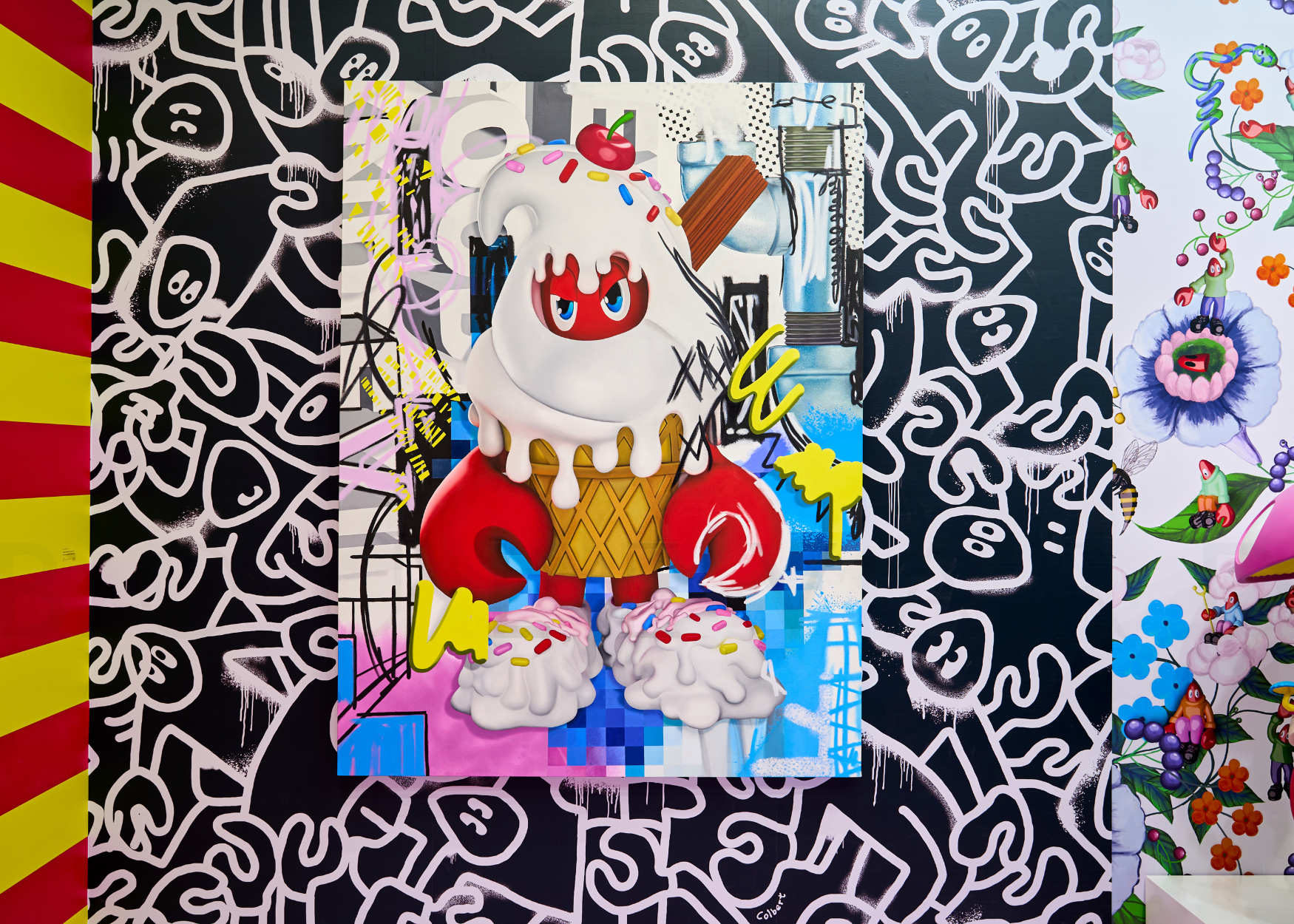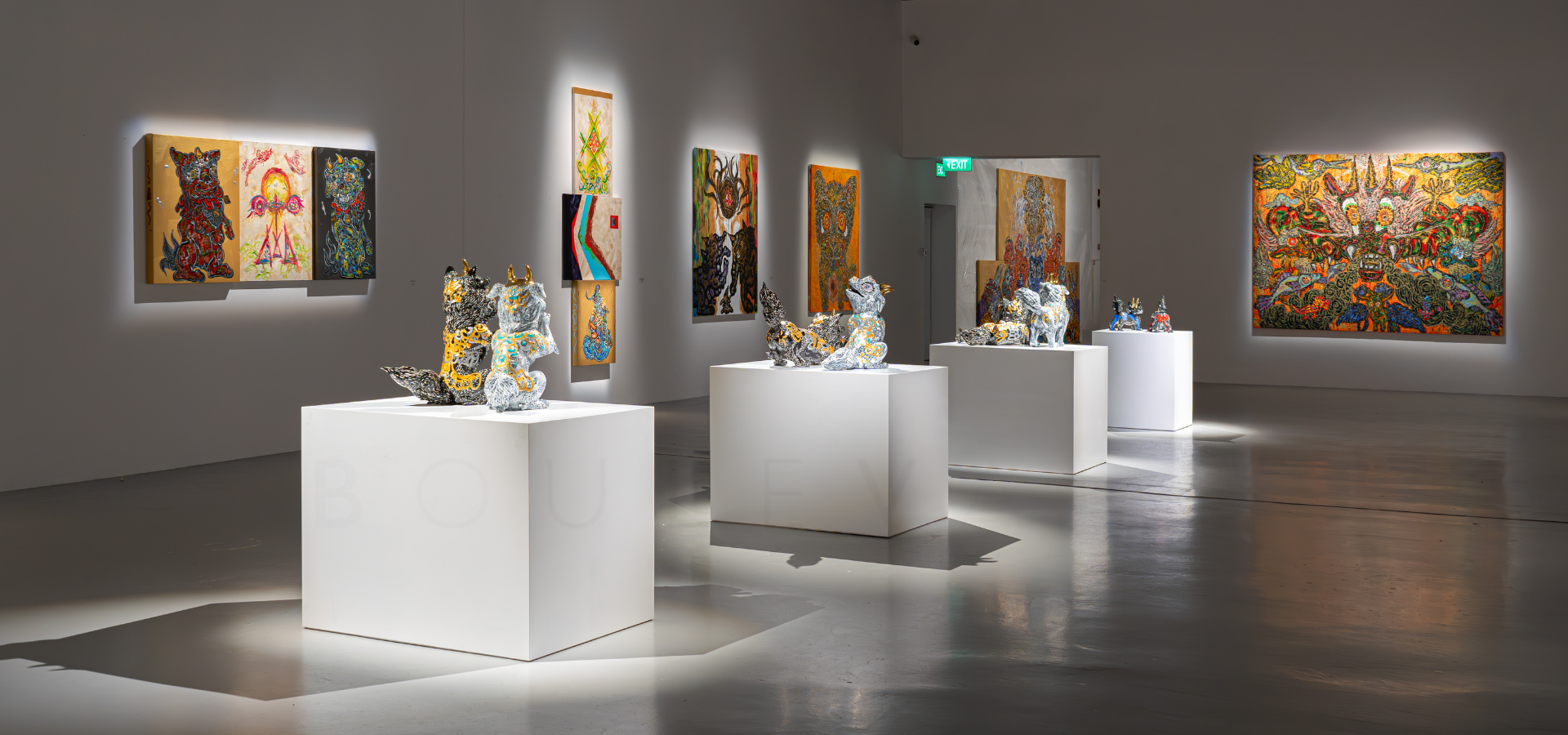
Art
Fine art galleries, regional and global talents, the latest exhibitions, and exclusive interviews and shoots…
— Featured in Boulevard Magazine —
Interview
The interview: Charles Fazzino on turning cities into 3D worlds—and why his joyful art speaks to every generation
Shot on location at Bruno Gallery in Singapore.
How Korean ceramicist Lee Heami and French painter Arno Boueilh found common ground in light and shadow
Shot on location at the Space Furniture Singapore showroom
The interview: Singaporean artist Suzann Victor fractures the colonial gaze at her latest exhibition at Gajah Gallery
Over the past three decades, Suzann Victor has held an outsized presence in the Singapore art scene. Her latest solo exhibition at Gajah Gallery, A Thousand Histories, extends her exploration of the themes of colonisation and objectification. Using lenses as her primary medium, Victor reimagines the concepts of seeing and being seen.
Review
Spinifex artists bring Aboriginal culture and country to canvas at ReDot Fine Art Gallery
ReDot Fine Art Gallery recently hosted the Rawa Tjunguku: working together a long-time exhibition, continuing the powerful message of the Spinifex people asserting the importance of connection to the environment, culture, community and enduring ancestral history. The gallery, which specialises in Indigenous Australian art, draws directly from a collection of the longest-standing Aboriginal Arts Centres in Australia, one of which is Spinifex Arts Projects.
Interview
The Interview: Giorgio Pilla on collecting indigenous art, how it’s still undervalued, and why he’s expanding to the US
Art has always mirrored the times we live in, a reflection of our societies, politics, and ways of life. For Australian indigenous artists, it's more than that: every dot, every line, every form carries cultural weight. Their art is a language of land, ancestry and identity, passed down over millennia and expressed not only on canvas, but on rocks, wood carvings, and ceremonial objects. And yet, despite its deep roots, the Indigenous art movement only gained wider recognition in the 1970s.
Poetic and philosophical – artist Janet Laurence’s latest exhibition at Cassandra Bird Gallery
Set within the backstreets of Sydney’s colourful and ever-cosmopolitan Potts Point, Cassandra Bird gallery opened its doors in October 2023 under the direction of art dealer and curator, Cassandra Bird, and her partner, artist, set-designer and exhibition maker, Fabian Jentsch.
Interview
The interview: Magnus Renfrew, co-founder of ArtSG, on the rising global interest in SEA artists
Co-founder of ArtSG, Magnus Renfrew talks us through the rising regional art market, the growing global interest in Southeast Asian talents and the next generation of collectors.
Interview
The interview: Dennis Ouyang, founder of Loy Gallery, on ‘A Trail to Chase’
Transcending the usual gallery experience, Loy Gallery bridges the gap between multi-disciplinary art communities not just in Singapore but also all over the world. Its latest exhibition, 'A Trail to Chase', is no different, showcasing the intersect between art and design. Here, founder Dennis Ouyang talks us through the inspiration behind the gallery and its latest show, collecting art and more.
— Latest Art Features —
Interview
The interview: famed French graffiti artist Kongo
Today, he’s sought-after by art collectors and luxury brands. But it wasn’t so long ago that French graffiti artist Kongo was hotly pursued by the law. “Graffiti hasn’t always been regarded as ‘street art’. Until quite recently, we were just considered to be vandals,” Kongo says. “The police would arrest me. I’d say, ‘But I’m making art, making beauty!’”
The interview: Art, architecture, and AI collide in Refik Anadol’s ‘Glacier Dreams’
New media artist Refik Anadol is not much of a new media artist. Which is not to say that his art isn’t extraordinary, awe-inspiring, sublime. It is all of these and more. Yet ‘new media’ feels awkwardly small in comparison to the scale and vision of Anadol’s works, where the medium is typically light itself, along with an architectural icon by Gaudí, Gehry, Safdie or Hadid.
Interview
Home tour: Aesthete Amanda Love’s home shows deep curatorial consideration
Aesthete and cultural connoisseur Amanda Love possesses a passion, vision and an inner circle that elevate her long-standing independent art advisory business, LoveArt, from expertise to art-world icon. Over 20 years of sourcing exceptional contemporary art across the globe and advising the sharpest private collectors and corporations, LoveArt has developed some of the most covetable collections in the world. You can only imagine what her personal collection and private haven are like. Until now.
Interview
The interview: Philip Colbert, on shaking the lobster trap of reality
“There’s a myth that serious structure and rational thought are true. The prison of rules. It’s limiting and false, and the thing I love about Surrealism is that sense of pulling the rug, letting the Other come into play – that sense of shaking the cage of reality.”
Showcase
The latest exhibition by artist-run initiative Syrup Contemporary Gallery
The second brainchild of co-directors Carolyn Craig and Damian Dillon, Syrup is a commercial gallery and art space representing a stable of artists from Australia and South East Asia. The duo’s inaugural gallery, Schmick Contemporary, was a studio-sized room in a dilapidated three-storey boarding house in the grungiest part of Sydney’s Chinatown district. Schmick was founded as an artist-run initiative to create spaces for emerging talents to exhibit their work in response to the significant number of gallery closures across Sydney during the pandemic.
Review
Izabela Pluta explores analogue photographic techniques in ‘Image after Image’ solo exhibition
Polish-born Australian artist Izabela Pluta works within the expanded field of photography to enact processes of record-making and translating that re-imagine the role performed by images in a broader social context. Her next solo exhibition, 'Image after Image', opens in May at Gallery Sally Dan-Cuthbert in Paddington, Sydney.
Interview
The interview: Goh Beng Kwan on mentoring and new media
As Singapore emerged from the privations of World War II and transitioned into independence, it was said that the arts were a luxury the new republic could scarcely afford. Of course, it’s never been easy to make a living as an artist. But in the all-business environment of mid-century Singapore, earning a living daubing oil on canvas was especially challenging.
Interview
Mucciaccia Gallery’s local exhibitions, world-renowned artists and private client services
“Try it. Take a work of art off the wall, out of your room. You’ll feel the hole, that something is missing, an emptiness, and it’s unsettling,” say Valter Spano, director at Partners & Mucciaccia Gallery. “Art becomes a part of you. Sometimes you only really feel that when it’s not there, when there’s a hole, like when you move house and it feels empty until the art goes up.”
Interview
Home tour: Inside art collector Anna Layard’s enviably curated house
“I’m not into minimalism,” says Anna Layard. As an art historian, consultant and founder of Layard Interiors, it would be almost criminal if she were to pare back the artefacts, paintings and sculptures in her home.
Interview
Ode to Art gallery: Rising talents, the regional art scene and new notions about owning art
A sense of serenity descends on entering Ode to Art gallery – a stark difference from the action of Raffles City. The canvases and eclectic mixed media are in sharp relief against the neutral walls, and showcase a largely Asian collection by the likes of Lim Tze Peng and Hong Zhu An. “I always feel great pride in our local art scene,” says owner / founder Jazz Chong, “and take great pleasure in seeing more local artists being collected.”
Review
The Commercial gallery shows cutting-edge aesthetic in ‘Lightmoving’ exhibition
At the forefront of contemporary art practice in Australia, The Commercial gallery has turned its back on the modernist white cube in favour of a polished, industrial-grey feel. Founder Amanda Rowell has hand-selected her gallery stable, featuring artists who exemplify the panache of modernity, the rawness and brutality of punk, the refined graces of minimalism, and the evocative provocations of post-conceptual practice. Rowell continues to invite emerging and experimental artists to exhibit alongside more established ones, giving the exhibition programme a timeless edge that straddles the best of all art forms.
Review
James Tylor explores his cultural roots in ‘Turrangka… In The Shadows’ exhibition
James Tylor's current touring exhibition, ‘Turrangka... In the Shadows’ presents a survey of the past decade of his practice exploring his Nunga (Kaurna Miyurna), Maori (Te Arawa) and European heritage. Featuring five exhibition rooms, the survey opens with a body of expanded photographic work, sculptural and culturally significant objects, and designs Tylor developed over a two-year journey along the 300km Hans Heyson trail through the Lofty Mountains and Flinders Rangers.
China Heights and the birth of the culture of cool
Established in 2004, China Heights was founded on an organic ethos of ‘sub-culture making’. As is often the case with taste-makers, what has now become one of the most innovative cross-form galleries in Australia began as a young art and design oriented group of peers riffing creatively in a warehouse.
Interview
Annalisa Ferraris: Painting Houses
Artist Annalisa Ferraris says growing up in the historically significant Sydney suburb of Castlecrag, her interest in architecture was piqued early. “My grandparents lived nearby — typical Italian family — and when I would walk through the streets with my Nonna when I was little, I just loved all of those signature Walter Burley Griffin flat-roofed houses,” she recalls.
Whitestone Gallery unveils the artistry of Miwa Komatsu and Ronald Ventura
The newly launched Whitestone Gallery in Singapore’s Tanjong Pagar Distripark is immediately striking in its polished concrete floors, bare white walls, raw ceilings and sculptural lobby designed by renowned architect Kengo Kuma.
Sydney Contemporary Art Fair
Now in its seventh consecutive year, the Sydney Contemporary Art Fair is a staple in the art calendar – and one of the biggest economic drivers in the Asia-Pacific art market.
Where to buy art in Singapore: galleries, consultants, salons and fairs
Picasso once pronounced that art washes the dust of everyday life off the soul. It also effortlessly sweeps the bland off our walls.


